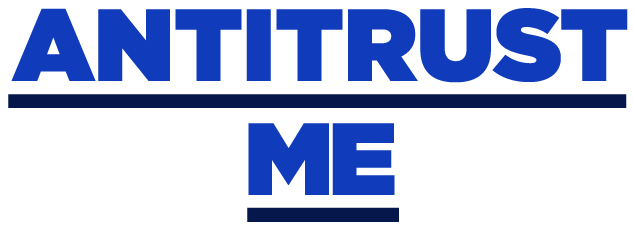
Have Silicon Valley’s biggest companies become too powerful? This series examines monopoly and power in the tech industry — and what, if anything, can be done.
When I wake up and want to see what my day looks like, I check my Google calendar. Of course, it’s filtered a bit wonkily through Apple’s Cal app, and filled with — for reasons I’m still not quite sure about — birthdays of obscure Facebook friends. At work, I use an Apple laptop, but have tabs open with Google’s browser and Google’s Gmail — though if I click on a link to email someone, by default my computer will open Apple’s Mail app. When I get home, I’ll ask a smart speaker from Amazon to play a podcast while I futz around in the kitchen, and then fruitlessly try to get Alexa to fast-forward an episode of podcast, because Amazon doesn’t sync up with Apple’s podcast app, and I’ve already heard the first 20 minutes. At the end of the day, if I want to unwind by watching a show on Amazon Prime Video, I need to use my Roku — not a Google Chromecast (and, until recently, not an Apple TV, either).
This is the gleaming future: Dozens of incredibly powerful and convenient programs and services at my fingertips, none of which work with each other. My digital life, such as it is, is currently stretched across warring fiefdoms. Google, Facebook, Apple, Amazon, and Microsoft all offer a similar array of services, and each company offers the best-in-class in at least one service. But each one makes it kind of a pain in the ass to get everything to work with everything else.
On the list of “reasons to advocate for more government regulation of the technology sector,” “Jake’s convenience” ranks pretty low. But it’s an appealing case. If you feel that companies like Facebook, Google, and Apple have grown too powerful, you might hope that the government will take up antitrust action against them, and then, through stick and carrot, enforce some kind of open standard — every company’s product would work simply and easily with others, whether by government fiat or some broad industry consensus.
But as ideologically appealing as open standards might be, they also tend to require more work, and can result in some very rickety systems. (Ever tried to set up your own email server? There’s a reason everyone turns to the convenience of Gmail.) And given that there doesn’t seem to be much appetite in D.C. for more than scolding tech companies — and that there’s absolutely no incentive for tech companies to play nice with everyone else or willingly cede control of any market — it seems like a jerry-rigged open-standards future isn’t just unappealing, but nearly impossible. Tech’s biggest players firmly own their own particular niches in the ecosystem, but all of them are currently fighting border skirmishes with at least one other company. It’s exhausting.
So, let’s just cut to the chase. Let one company win.
Instead of juggling four platforms at once, moving your communication and your calendars and your media across OSes, hardware, and software, let’s just have one: an all-in-one email, browsing, streaming, shipping, playing, scheduling, ride-sharing, reading behemoth. Every bit works with every other bit, and I’m not stuck staring at random Facebook birthdays.
I’m not the first person to come up with this solution. Peter Thiel argued that competition is a false idol in The Wall Street Journal in 2014, suggesting that open-market competition forces companies to focus on razor-thin margins, rather than thinking longer term. As my daily struggles with syncing services proves, competition in the technology industry comes at the cost of convenience and ease of use. Writes Thiel: “Only one thing can allow a business to transcend the daily brute struggle for survival: monopoly profits.” Who wants a daily brute struggle? Not me!
And while some of the companies swallowed up by my gargantuan corporation would likely protest, overall, Silicon Valley could hardly argue against smoothing out the edges of individual companies. One of the core beliefs of Silicon Valley is the benefits of network effects and interoperability. Put in plain English, most networked things are better when more people use them, and networked things are better still when all of that data and all of those systems can communicate with each other. Smooshing every competing tech giant into one would create the world’s largest network, and interoperability would follow in kind. Just imagine: a huge, open network where everything can talk to everything else. It would be historic.
I realize that by calling for one company to take over one of the most profitable sectors of the global economy, I’m inviting in a kind of dystopia. A world ruled by Amazon is one that’s amazingly efficient, but also ruthlessly Taylorized. Put Apple in charge and you get a world where everything is beautifully made, but impossible to change. Microsoft’s world mostly works, but at the cost of deathly boredom. Facebook’s world is fast, earnest, and completely clueless. When its algorithm discovers that nuclear winter really moves the needle, we’d get to Instagram some glorious final sunsets after a hundred mushroom clouds bloom.
Frankly, out of all of them, I might prefer a Google world — it already has a foothold in nearly every part of the tech ecosystem, from hardware to operating systems, and probably touches more bits of most people’s lives than any other company. (My preference for Google has nothing to do with the fact that it has its hands on my entire search history and all of my Gchats.)
But imagine the benefits! I wake up in the morning to a perfectly working calendar; links on my computer take me to the proper programs; my podcasts are always synced; and I have access to all of the streaming media I desire. The dream of frictionless computing long sought by today’s megaplatform behemoths would finally have been achieved. In Silicon Valley, bigger really is better, and biggest is best.
The main problem with my solution, besides the whole “megacorp hellscape” thing, is that none of the big five has enough capital to acquire its four other competitors. Luckily, the federal government could intervene with taxpayer money, fronting one company the four trillion or so dollars you’d need to realistically buy out everyone. The federal budget in 2016 was $3.9 trillion dollars, which would mean deep, deep cuts to every part of the federal budget. Accordingly, part of my grand bargain would include the stipulation that the company we choose would also take on managing things like national security, interstate commerce, and issuing currency.
And, with American citizens so heavily invested, it would only make sense that they also have a say in which company is picked to take over, and who gets to run it. As shareholders, we’d have a process to remove the CEO if he or she is proving ineffective at providing the gadgets, dopamine-feedback apps, and streaming video we need to survive in the modern world — say, a shareholder vote every 16 financial quarters.
I will be the first to admit that my plan has its flaws. But when looking at other potential fixes for the trap we’ve stumbled into, I don’t see anything else that realistically has a chance. For a pain-free future, let’s just expand one company’s walled garden out as wide as possible. I’m sure, in a few years, those of us not removed in the purges will be quite comfortable living there.






























